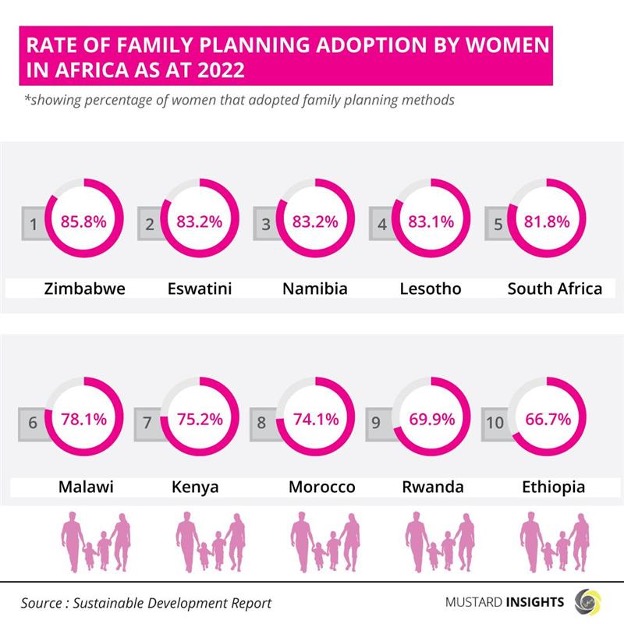Family planning continues to gain acceptance amongst African women with more of them choosing to adopt safe and modern methods of planning childbearing. According to the World Health Organization (WHO), family planning is defined as “the ability of individuals and couples to anticipate and attain their desired number of children and the spacing and timing of their births. It is achieved through the use of contraceptive methods and the treatment of involuntary infertility.” It has also been considered as one of the key features central to gender equality and empowerment – the ability for a woman to willingly choose when she wants to give birth.

Family planning continues to gain acceptance amongst African women with more of them choosing to adopt safe and modern methods of planning childbearing. According to the World Health Organization (WHO), family planning is defined as “the ability of individuals and couples to anticipate and attain their desired number of children and the spacing and timing of their births. It is achieved through the use of contraceptive methods and the treatment of involuntary infertility.” It has also been considered as one of the key features central to gender equality and empowerment – the ability for a woman to willingly choose when she wants to give birth.
Family planning serves various purposes: (i) it helps prevent unwanted pregnancies, (ii) it helps protect women from health risks that occur during the whole process of childbirth (iii) it helps alleviate poverty, and (iv) it helps reduce teenage pregnancies, just to name a few.
Access to family planning is a fundamental right that lies at the heart of two of United Nations Population Funds’ transformative goals, which are to end preventable maternal death and the unmet need for family planning. In this article, we briefly discuss the rate of family planning in Africa as of 2022.
By the Data
In 2015, the United Nations 2030 Agenda for Sustainable Development included under Goal 3 “calls for the universal access to reproductive health-care services, including family planning, and the integration of reproductive health into national strategies and programs.”
Zimbabwe comes first amongst countries in Africa with an index score of 85.8%. Family planning services were first available in Zimbabwe in 1953. The National Family Planning Council (ZNFPC) is the primary organization responsible for family planning in Africa. They distribute contraceptives like IUDs, condoms, pills, and injectables through their 37 planning clinics located across different regions in the country.
Eswatini came second on the list with an index score of 83.2%. The Short Message Service Programme (SMSP) in conjunction with international bodies, is largely responsible for the dissemination of information across Eswatini. Their goal is to reach 80,000 young people across the country.
Namibia and Lesotho ranked fourth and fifth each with an index score of 83.1%.
In Namibia, family planning is compulsory and accessible to women of all ages. According to the Namibian Demographic Health Survey (NDHS), over 50.2 percent of women of reproductive age (15- 49 years) use some form of family planning method. While in Lesotho, the Ministry of Health and Social Welfare (MOHSW) has the overall responsibility for managing the national family planning program. The country currently has 148 registered health facilities in operation, with 87 of them offering modern family planning services to its citizens.
Other countries that strongly advocate for family planning include South Africa, Malawi, Kenya, Morrocco, Rwanda, and Ethiopia with respective scores of 81.8%, 78.1%, 75.2%, 74.1%, 69.9%, and 66.7%.
Takeaway
According to this report, it is evident that family planning in Africa is performing at a successful rate and if governments keep prioritizing planning, the challenges surrounding family planning are set to reduce drastically.
Thoughts?
We won't share your email address. All fields are required.
